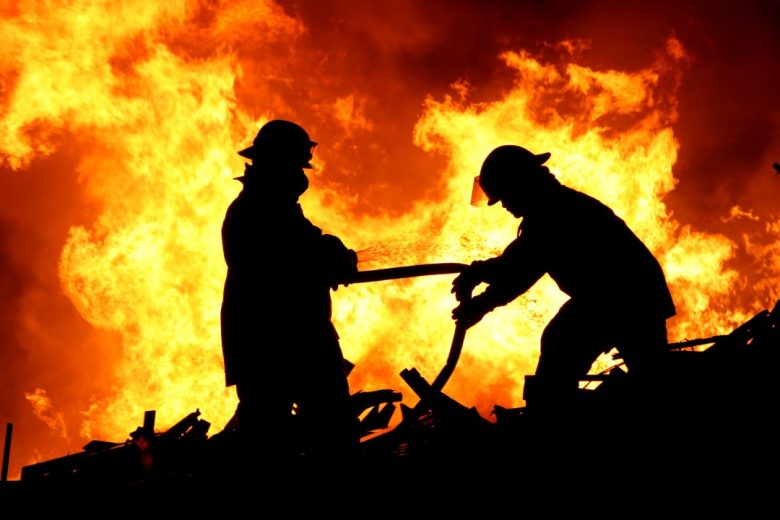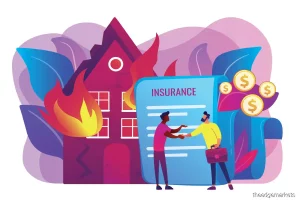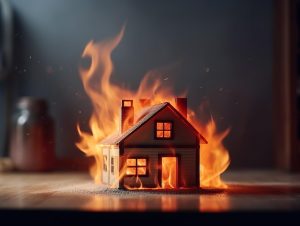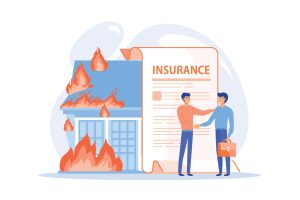Fire insurance is an important safety net because it protects people financially against the horrific damage that fire can cause to homes and businesses. It is important to understand the factors that influence fire insurance rates, although their importance is obvious. This guide explains the key factors that insurance companies consider when deciding how much to charge for fire insurance. This will help you protect your property without spending a lot of money.
1. Where You Live Matters:
The location of your home is one of the most important factors affecting fire insurance rates. Higher premiums may apply to homes near fire stations, in places prone to forest fires or in areas with high crime rates. Insurers pay attention to the local risk environment. If your home is located in an area more prone to fire, expect insurance costs to increase.
2. Building Supplies and Construction:
The products you use to build your home have a major impact on the cost of your fire insurance. Refractory materials such as brick or stone are less likely to sustain significant damage in a fire, which can result in slower burning rates. Insurance companies often use the overall fire resistance of a home’s building materials to determine how risky a home is. This affects the cost of your fire insurance.
3. Fire Prevention Measures:
Whether good or bad, having fire safety features in your home can lower your insurance rates. Homes equipped with fire alarms, water systems and fire extinguishers are considered safer and less likely to have major fires. As a result, insurance companies can offer discounts to homes that take measures to reduce the risk of fire. Investing money in these security measures will not only make things safer, but you can also save money on your insurance premiums.
4. Claim History:
Your past insurance claims, including any fire-related claims, are an important factor that insurance companies use to determine your premium. Homes that have had many incidents in the past, especially fire incidents, may have to pay more for insurance. If you have a history of being a responsible and careful homeowner, you may get better premiums.
5. Safety Measures:
In addition to fire safety measures, general safety measures can also influence fire insurance rates. Homes are considered more secure with security systems, surveillance cameras and other anti-theft devices. Not only will these steps deter potential thieves, but they will also help you create a greater risk reduction plan, which could mean lower insurance costs.
6. Replacement Cost vs. Actual Cash Value:
The way the insurance company calculates the value of your property and contents can affect your rates in the event of a fire claim. Actual cash value (ACV) or new cost can be used to determine how much insurance you should pay for something. Replacement cost coverage will reimburse you for the current costs of replacing damaged or damaged items. This can lead to higher premiums. ACV, on the other hand, takes depreciation into account, which can mean a lower interest rate but less reset coverage.
7. Tax Reduction:
Your rates are influenced by the deductible you choose for your fire insurance. A deductible is the amount you must pay out of pocket before your insurance starts paying. If you choose a higher deductible, your premiums will generally be lower, but you will pay more if you need to make a claim. It’s important to find a combination that suits your risk tolerance and your ability to repay debt.
8. Credit Score:
In some cases, insurance companies can use your credit score to calculate the cost of your fire insurance. If you have a higher credit score, insurance companies will consider you less of a risk because it usually means you are responsible for your money. Credit scores can affect fire insurance rates in different places and with different companies, but maintaining good credit can lead to better rates.
9. How Close Is It to Fire Hydrants and Fire Stations?
How far your home is from fire hydrants and fire stations can affect the cost of your fire insurance. People often think that homes closer to these important rescue resources are safer because a faster response reduces the risk of fire. Therefore, being close to fire hydrants and stations can help reduce your insurance costs.
10. External Risks:
The natural environment surrounding your home is an example of an external risk that can affect your fire insurance rates. Homes located in wooded areas or in places prone to natural disasters such as forest fires may have higher insurance rates due to the higher risk of fire. Insurance companies study these external risks to understand how vulnerable your home may be.
Conclusion:
By understanding the key factors that influence fire insurance rates, people can make informed choices when choosing coverage. Some things, such as a building’s location and structure, may be out of your control, but taking proactive steps, such as adding fire and security systems, can positively impact your premiums. To get the best deal on fire insurance, consider your deductible carefully, review and update your coverage regularly, and maintain good standing as a homeowner. By carefully weighing these factors, you can find a good combination between full protection and low costs. This protects your home and valuables from unpredictable fire-related risks. Talk to an insurance agent or broker to make sure your policy meets your specific needs and look for ways to save money without lowering your level of coverage.



